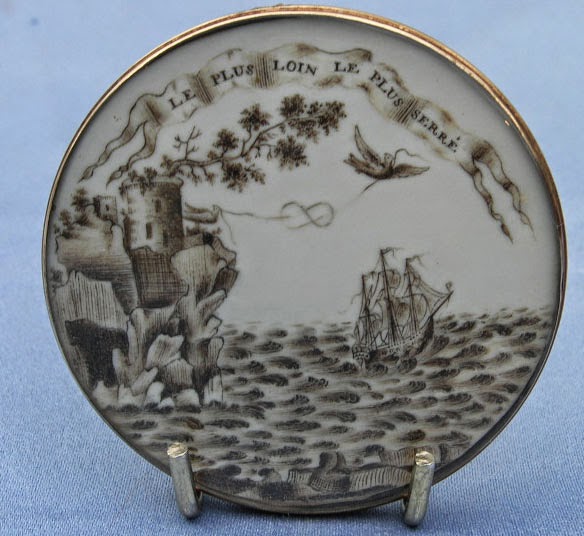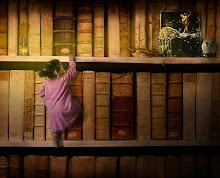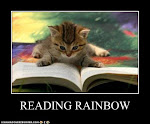I saw
Fantastic Mister Fox last night - opening night, no less! - and was delighted. BEYOND delighted.
A brief history:
Fantastic Mr Fox is one of the few children's books I remember receiving and reading in my own actual childhood. It turned up in my Easter basket one year, probably when I was seven or thereabouts, and I remember being thrilled with it. My edition (like the one at left) has these wonderful, gorgeous illustrations by Donald Chaffin, which I think made me see the book in a very different way; as a softer, more tragic (and thus ultimately more joyful) book than if I had first encountered it with Quentin Blake's illustrations.
After plucking the book from my Easter basket, I sat down and read the whole thing in one sitting, no really great feat since it's only about 50 pages long (possibly fewer). But I've re-read it countless times since then, and it's always lurked in the back of my mind as my favorite Dahl book.
Which is why I was both nervous and excited when I first heard,
years ago, that Wes Anderson planned to make a movie adaptation of Mister Fox. This was probably around the time that
The Life Aquatic came out - 2004? I had seen
The Life Aquatic and loved it, and have since seen most of Anderson's films - enough to know that he makes wondrous movies. He has a touch of magic in all his movies, a touch of the wonder-full, that is somehow exactly what I want out of a movie.
Fantastic Mister Fox has the best of both worlds: Dahl's and Anderson's. It's beautiful to look at; the aesthetic of the film is perfect to its content. The effect of the stop-motion animation is to give a very joyful, very whimsical tone to the movie, especially when the animals break into dance (which they do rather often). In particular, a scene in Ash's room, at night, featuring a toy train and then a real train, is heartbreakingly beautiful. The plot of the novel has been developed and carefully added on to - the spirit and sense of the novel is absolutely present, even in the new additions - like the Foxes nephew, Kristofferson (who is adorable) and the development of the youngest member of the Fox family, Ash, whose rivalry with Kristofferson and his desire to be seen as an athlete (and not as a little....odd) form a thoroughly Andersonian sideplot that somehow meshes perfectly with Dahl's original tone.

Ash is, by far, my favorite character. He's quirky and odd and growls and wears a cape - he first appears clad only in underwear, trying to avoid going to school. Denied a bandit mask, he fashions one of his own from a tube sock, resulting in a mask with a bobbling, periscope-like sockfoot above his head. He's strange and unaware of his own strangeness, which makes him even more endearing; he truly sees himself as an athlete, a capewearing hero.
What the movie does best - and what I love Anderson for - is to add more story, more heart, to Dahl's already outstanding story without ever stepping over the bounds of Dahl's resolutely unsentimental, funny aesthetic. Scenes between Mr & Mrs Fox, between Ash and Kristofferson, between Mr Fox and Ash, approach moments of sentimentality, of learning valuable lessons about life and love and what really matters -- but the beauty of the film is that these cliched, syrupy moments never actually come off. A gesture, an approach, is the closest we get, before the quotidian (or hilarious) intervenes and saves us from sappiness. A particularly fantastic example of this comes at the film's end and features a wolf.
The soundtrack for the movie is inspired. Though the opening 10 minutes of
WALL-E will always be the best opening of any movie ever, the first few minutes of Mr Fox rates very highly in comparison. The soundtrack has lots of jazzy, swingy mid-century instrumentals, and songs by the Rolling Stones, the beach boys and Burl Ives, who is very heavily represented in the soundtrack. It's dead right for this movie, somehow - the gesture to sentimentality without ever actually lapsing into it.
After taking a class on Adaptation in my first year at Pitt, I've spent an inordinate amount of time puzzling over the problem of transmediating book to film, and how to "judge" the resulting movie. The standard assessment, which our class rapidly dismissed (perhaps hastily, very probably a bit scornfully) is fidelity to the original text. But the course also evolved a more complicated way of determining success, and that ended up being - for me, at least - a kind of fidelity to the spirit of the original text. The truly brilliant adaptations maintain the spirit of the original source - the meaning of the original text - but also add on new embellishments and flourishes that extend that original spirit and meaning, additions that make the viewer reflect on the original text in new and interesting ways. The two works become kind of like mirrors facing each other, but mirrors that manage to reflect and capture new angles. Once you have viewed the book through the prism of the successful film, the book is never the same again - in a good way. Likewise, watching the film after knowing the book alters the film - for the better, as well. They become both thoroughly independent and thoroughly complementary, intertwined works of art.
And that is what
Fantastic Mister Fox does - it offers up the glorious original story while simultaneously making that original story more glorious through its own new additions.
in other words, and to paraphrase Mrs Fox "This movie is a fantastic film."
 I think I need to see FANTASTIC MISTER FOX again.
I think I need to see FANTASTIC MISTER FOX again. 






